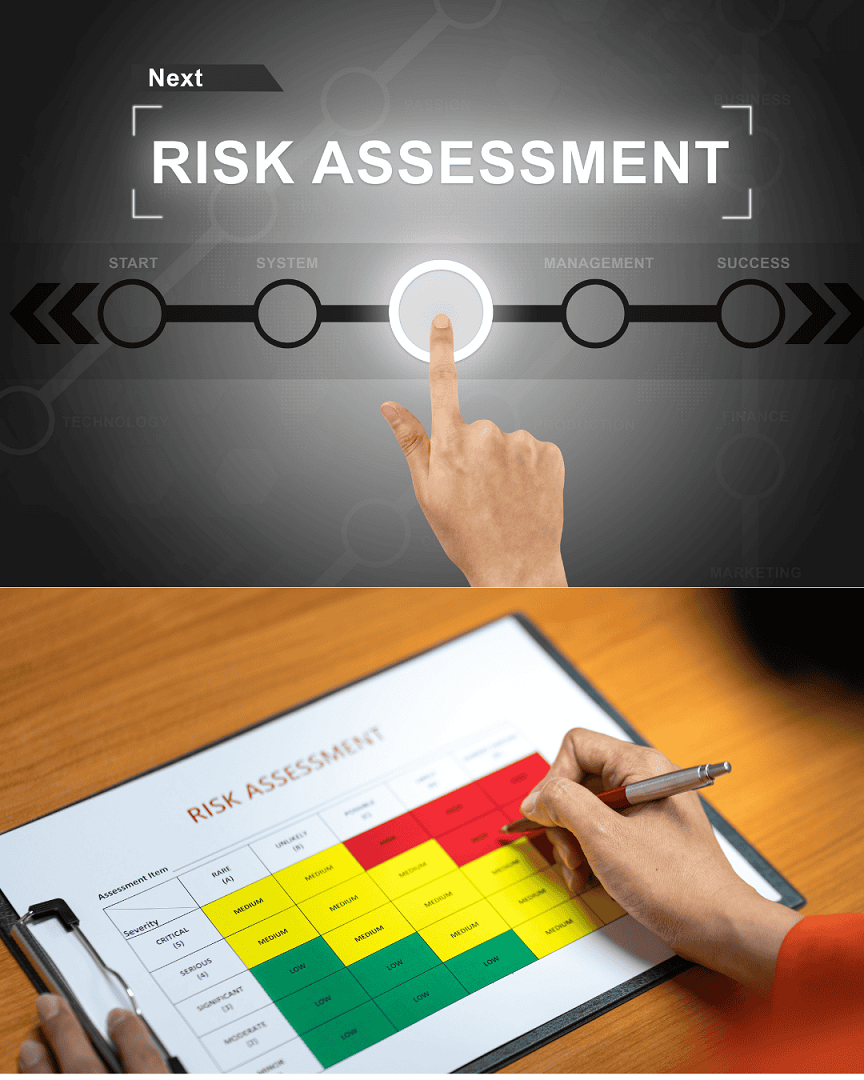Source: Vector Choice - URS Preferred Partner
In today’s digital world, your business’s data and technology are constantly at risk. Cyberattacks are no longer a problem just for large corporations—small and medium-sized businesses are prime targets too. That’s why a security risk assessment is no longer optional; it’s essential.
A security risk assessment is a structured review of your company’s technology, processes, and policies. Its goal is simple: identify potential vulnerabilities before attackers do and provide actionable steps to strengthen your defenses. Think of it as a thorough health check-up, but for your business’s digital environment.
What a Security Risk Assessment Really Does
A proper assessment goes beyond checking your antivirus or firewall. It looks at your entire IT ecosystem, including:
Networks and infrastructure: Are your routers, firewalls, and Wi-Fi networks secure?
Devices: Are laptops, desktops, and mobile devices protected and up to date?
Access controls: Does the right person have the right level of access to sensitive data?
Applications and software: Are your tools secure and compatible with modern platforms?
Data protection: Are backups, encryption, and disaster recovery plans in place?
Employee awareness: Are staff trained to recognize phishing attempts and unsafe practices?
The outcome is a clear understanding of your security posture, along with practical recommendations to reduce risk.
Why It Matters for Your Business
No matter the size of your company, cyber threats can impact your operations, finances, and reputation. Here’s why assessments are critical:
Protect sensitive information: From customer data to financial records, a breach can be devastating.
Ensure compliance: For regulated industries, assessments help meet requirements and avoid penalties.
Minimize downtime: Cyberattacks can halt operations, costing time and money.
Build trust: Showing clients you prioritize security strengthens credibility and loyalty.
How Often Should You Conduct an Assessment?
While an annual review is recommended, certain events call for a reassessment:
Expanding your business or opening new offices
Implementing new software or cloud services
Experiencing a security incident or breach
Preparing for audits or certifications
Regular assessments, combined with ongoing monitoring, help you stay ahead of evolving threats.
The Security Risk Assessment Process
A professional assessment typically follows these steps:
Identify critical assets: Determine what data and systems are most valuable to your business.
Analyze potential threats: Consider risks like ransomware, phishing, insider errors, or supply chain vulnerabilities.
Evaluate weaknesses: Scan devices, networks, and applications for gaps and outdated systems.
Assess risk levels: Combine threats and vulnerabilities to prioritize what needs attention first.
Provide actionable recommendations: From software updates to employee training, get a roadmap to improve security.
Common Misconceptions
“It’s too expensive.” The cost of a breach is far higher than an assessment.
“We’re too small to be a target.” Small businesses are often targeted because they lack strong defenses.
“We have antivirus software, so we’re safe.” Antivirus is important, but it only covers one aspect of security.
Partnering with experienced professionals ensures a comprehensive, reliable, and tailored assessment. Experts can identify hidden risks, guide compliance, and help implement lasting solutions.
Conclusion
A security risk assessment is not just a technical exercise—it’s a business-critical investment. By understanding your vulnerabilities, protecting sensitive data, and preparing for potential threats, you safeguard your operations, your reputation, and your customers’ trust.
In today’s fast-moving digital landscape, regular security risk assessments are non-negotiable. Protect your business before cyber threats find you.
👉 Request your customized cyber vulnerability report today and stay ahead of threats.
👉 Gain insights into your unique cybersecurity vulnerabilities with a custom report.
👉 Train your team to be your first line of defense
📞 Schedule a call today or 📧 contact us for a consultation.

